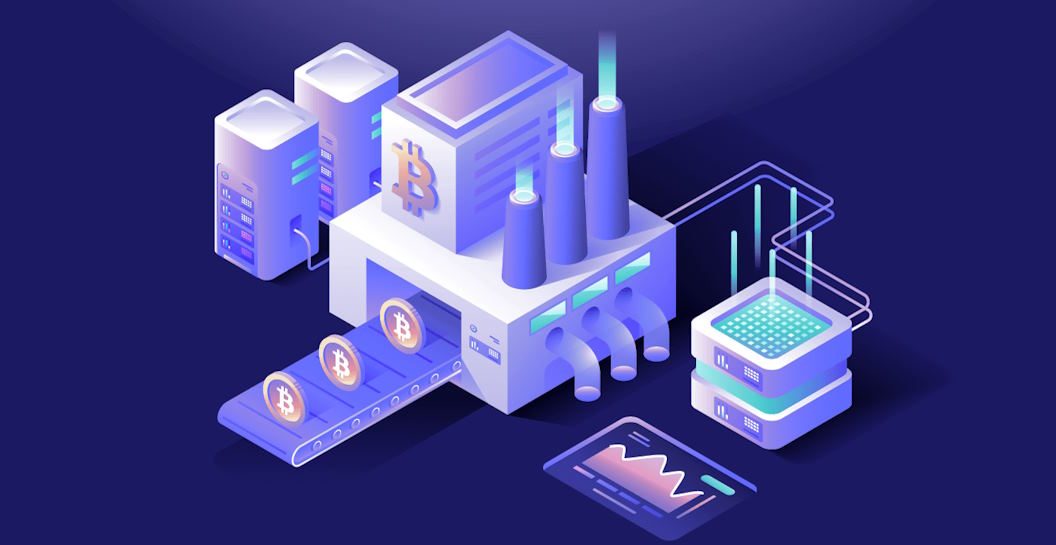Cryptocurrency mining has become a prominent force in the global economy, revolutionizing the way we transact and store value in the digital age. As the popularity of cryptocurrencies continues to soar, understanding the economic effects of mining has become crucial. In this article, we delve into the intricate world of cryptocurrency mining to shed light on its economic implications. From the creation of digital assets and job opportunities to environmental concerns and regulatory challenges, we explore both the benefits and risks associated with mining.
Economic Benefits of Cryptocurrency Mining
Cryptocurrency mining, despite its energy-intensive nature and environmental concerns, offers a range of economic benefits that should not be overlooked. In this blog section, we will explore three key areas where mining contributes positively to the economy: the creation of new digital assets, job creation and economic growth, and technological advancements and innovation.
Creation of new digital assets:
One of the primary economic benefits of cryptocurrency mining lies in the creation of new digital assets. Miners play a crucial role in securing blockchain networks and validating transactions. In return for their efforts, miners are rewarded with block rewards, which typically consist of newly minted coins. This process not only ensures the smooth operation of the cryptocurrency ecosystem but also introduces new coins into circulation. The issuance of these coins has a direct impact on the cryptocurrency market capitalization, driving its growth and liquidity. As mining continues and more coins are created, the value of the cryptocurrency ecosystem expands, providing investors and enthusiasts with new opportunities for value appreciation and financial growth.
Job creation and economic growth:
Cryptocurrency mining operations require significant infrastructure and specialized expertise, leading to job creation and economic growth. Mining farms, equipped with powerful hardware and cooling systems, require technicians, engineers, and maintenance personnel to ensure smooth operations. Additionally, the expansion of mining operations leads to increased demand for electricity, which benefits energy providers and the local economy. Moreover, the growth of mining-related industries, such as mining equipment manufacturers and software developers, provides employment opportunities and fosters innovation within the technology sector. By stimulating job creation and fostering economic growth, cryptocurrency mining contributes to the overall prosperity of regions and communities.

Environmental Concerns and Sustainability
While cryptocurrency mining offers economic benefits, it is also accompanied by significant environmental concerns. In this blog section, we will delve into the environmental implications of mining and explore potential solutions for promoting sustainability within the industry.
Energy consumption and carbon footprint:
Cryptocurrency mining is notorious for its energy-intensive processes. The mining of cryptocurrencies, especially those that rely on proof-of-work consensus algorithms, requires immense computational power, which translates to high electricity consumption. As a result, mining operations contribute to a substantial carbon footprint, primarily due to the reliance on fossil fuels for energy generation. The energy-intensive nature of mining raises concerns about its impact on global energy consumption and greenhouse gas emissions. As the popularity of cryptocurrencies grows, it becomes imperative to address these environmental challenges and mitigate the negative effects.
Transition to renewable energy sources:
To address the environmental concerns associated with mining, there is a growing need for a transition towards renewable energy sources. Initiatives and projects promoting sustainable mining are emerging worldwide. These initiatives explore alternative energy options, such as solar, wind, hydro, and geothermal power, to power mining operations. By harnessing renewable energy, miners can significantly reduce their carbon footprint and contribute to a more sustainable future. However, transitioning to renewable energy sources presents both benefits and challenges. While renewable energy adoption aligns with sustainability goals and mitigates environmental impact, it can be economically and logistically challenging to implement on a large scale. Issues such as energy infrastructure, cost-effectiveness, and availability of renewable resources need to be addressed to ensure a successful transition.

Economic Challenges and Risks
While cryptocurrency mining presents economic benefits, it is not without its share of challenges and risks. In this blog section, we will explore the economic hurdles that miners face and the potential risks associated with mining operations.
Volatility and market instability:
One of the primary economic challenges in cryptocurrency mining is the inherent volatility and market instability of cryptocurrencies. Mining profitability is closely tied to cryptocurrency prices, and fluctuations in the market can have a significant impact on mining operations. When prices soar, mining becomes highly profitable, attracting more miners and increasing competition. Conversely, during market downturns, mining profitability may decline, making it less economically viable for miners to continue operations. The volatility of cryptocurrencies introduces uncertainty into the mining landscape, making it essential for miners to carefully manage their risks and adjust their strategies accordingly.
Regulatory hurdles and legal considerations:
Government regulations and legal considerations pose another significant economic challenge for cryptocurrency miners. The regulatory landscape surrounding mining operations varies from country to country. Some governments have embraced mining, providing favorable conditions and incentives, while others have imposed strict regulations or outright bans. Regulatory changes can impact mining profitability and operations by introducing additional costs, requiring licenses or permits, or imposing restrictions on energy consumption. Compliance with legal requirements can be complex and time-consuming, posing challenges for miners to navigate the evolving regulatory environment effectively.
